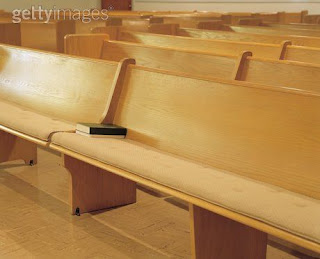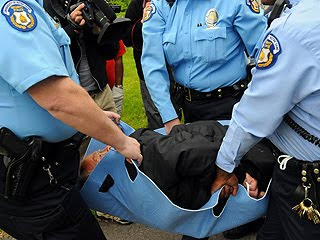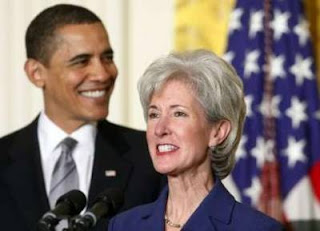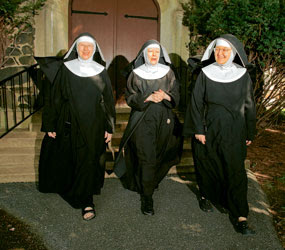 Few people on earth can craft a press release better than Bill Donohue of the Catholic Leage for Religious and Civil Rights. Below are two of his most recent which are both biting and compelling in their assessment.
Few people on earth can craft a press release better than Bill Donohue of the Catholic Leage for Religious and Civil Rights. Below are two of his most recent which are both biting and compelling in their assessment.MICHAEL MOORE’S RELIGIOUS ODYSSEY
If the economic system that Michael Moore has successfully milked is “immoral” and “evil,” then that would suggest that he is an immoral, evil man. But we’ll let someone else make the final decision on that one. What we do know is that he is wearing his religion on his sleeve these days, telling Chris Cuomo how he believes “in the core Christian values.” One wonders why, then, would this Catholic—whose role models are the rogue Berrigan brothers—would give money to an urban terrorist group right after they invaded St. Patrick’s Cathedral during Cardinal O’Connor’s Sunday Mass in 1989; some spat the Host on the floor.
More recently, Moore cited the oil giant Halliburton as emblematic of capitalism’s evilness. What he didn’t mention is that his Halliburton investments helped to make him filthy rich. Oh, yes, he also likes Sunoco.

Capitalism has been kind to Moore. He lives in a waterfront mansion with a private beach, one that is so lily-white that not a single black person lives there. This is not by accident. Though he exclaimed in his film “Stupid White Men” that he plans to “hire only black people,” author Peter Schweizer found that of the 134 producers, editors, cinematographers, composers and production coordinators that Moore hired, only three were black.
Moore says it is anti-Christian not to divide the pie fairly. So what would that make him? Oh, yes, he does contribute to soup kitchens. Too bad he doesn’t actually employ the poor—then he could shelve the Campbell’s. In 2002, his charitable donations amounted to $36,000. Sounds like a lot until we learn that he made eight figures that year. One more thing: he ran his donations through his private foundation, a capitalist-created scheme designed to protect fat cats from paying their fair share of taxes.
The next time a social justice Christian brags about his commitment to the poor, ask him to open his own books. Transparency is so beautiful.
MAD RUSH TO DEFEND POLANSKI
The Catholic League has long suspected that, in many quarters, the outrage over priestly sexual abuse has had more to do with the status of the accused than the crime itself. Now the evidence is indisputable: a child can be drugged, penetrated and sodomized—and the guilty can cut and run—and still maintain hero status. Provided he is a celebrity.
Actress Debra Winger showed up at the Zurich Film Festival “to honor Roman Polanski as a great artist, but under these sudden and arcane circumstances, we can only think of him today as a human being.” Either that or as a child rapist. She was not alone: the Zurich Film Festival jury proudly displayed red badges reading “Free Polanski.” It was also nice to know that Woody Allen, a man who speaks from experience, came to Polanski’s defense.

Whoopi Goldberg showed off her usual brilliance when she declared that Polanski’s crime “wasn’t rape-rape.” No, only priests are guilty of real rape. Noted photographer Otto Weisser agrees: “He made a little mistake 32 years ago.” That’s right—it’s only a big mistake when priests do it. Richard Cohen of the Washington Post also notes that it’s been “over 30 years” since Polanski molested the girl. Similarly, movie critic Tom O’Neil exclaims that it is “mind-boggling why they’re still pursuing this.” Yet there is no statute of limitations afforded priests—men long dead have been accused of crimes extending back to the 1920s.
Harvey Weinstein is so noble: “We’re calling on every film-maker we can to help fix this terrible situation.” The terrible situation, of course, isn’t what Polanski got away with—it’s his pursuit by the authorities. “To put him on trial or keep him in jail does not serve society in general or his victim in particular,” says journalist Anne Applebaum. She, and others, would carry more weight if the “he” included priests.
No wonder so many Americans look upon the celebrity worshippers with utter disdain. Double that for Catholics.















